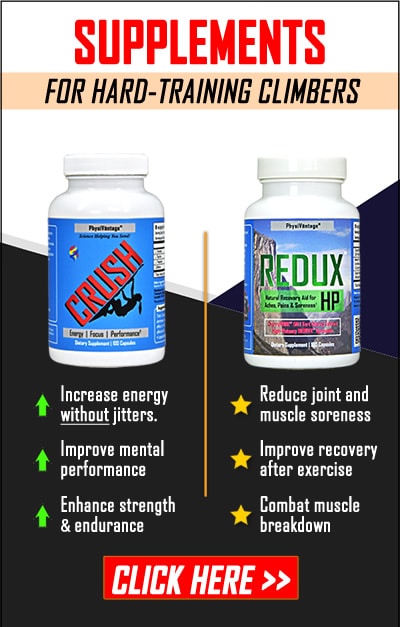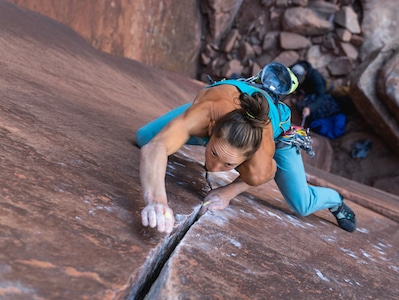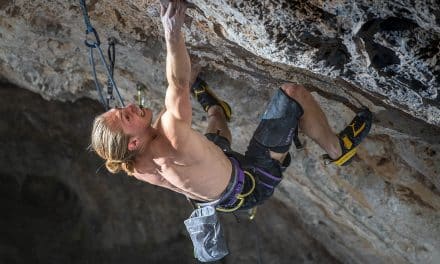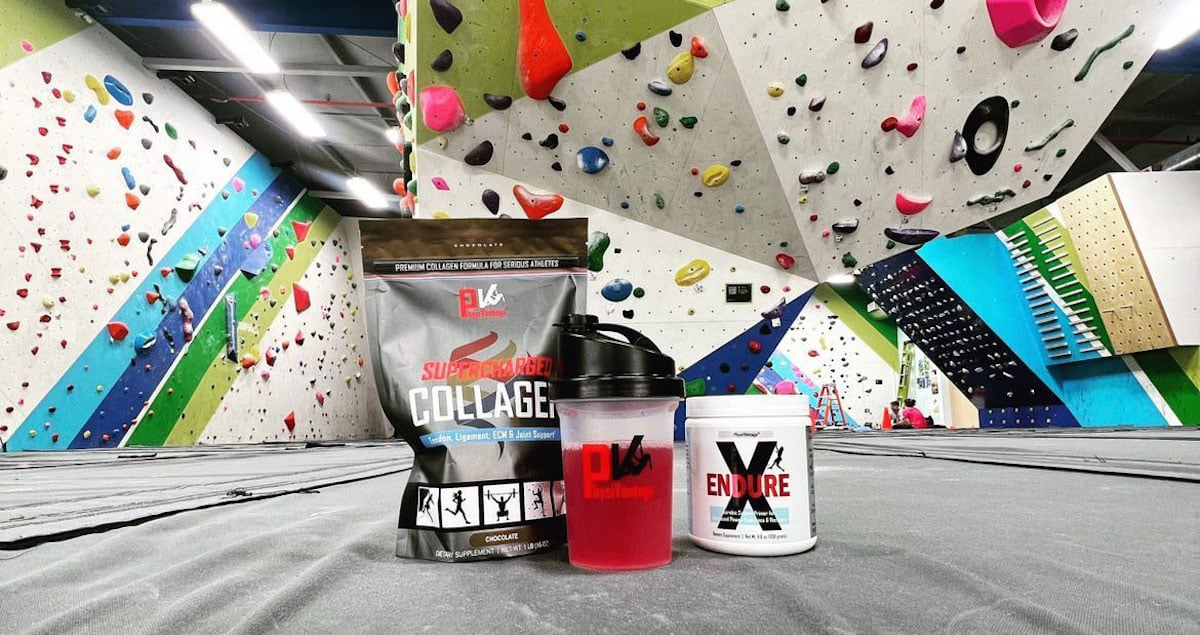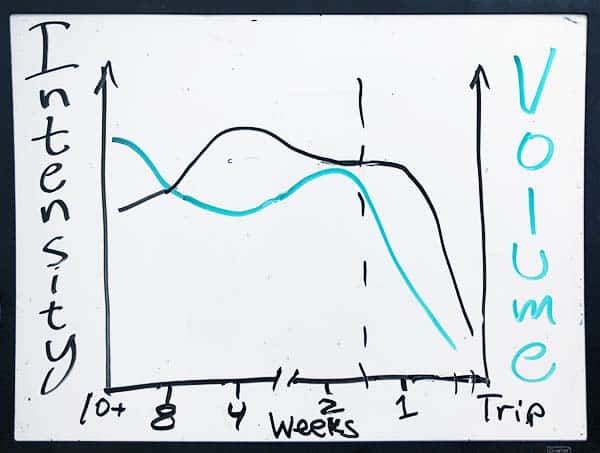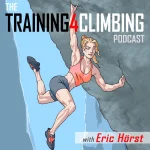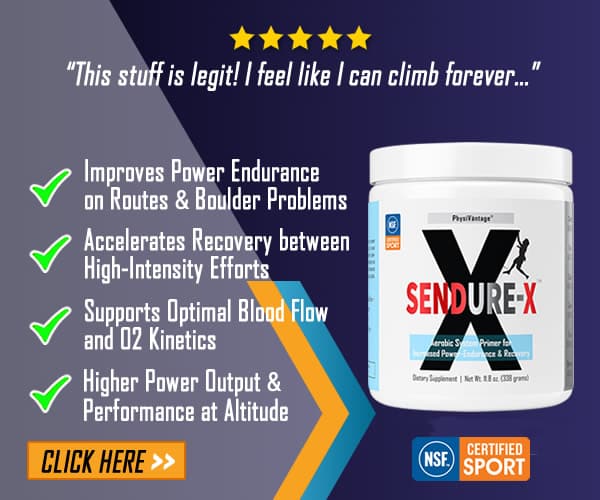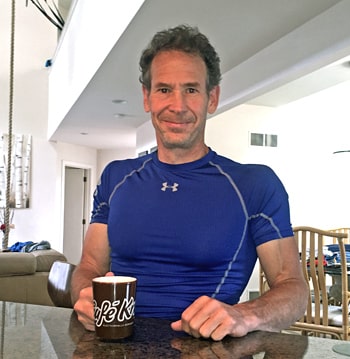
At home, enjoying a pre-workout Café!
If you are a coffee aficionado like me, then this article is for you! Your addiction—er, culinary ritual—may actually give you an extra edge in both training and climbing. Here’s the scoop on using caffeine for climbing performance.
(This article was originally published in March of 2019—but my coffee habit lives on!)
Caffeine (the active ingredient in coffee) is the number one ergogenic aid of the common man and athletes alike. Caffeine’s effects on the central nervous system help you wake up in the morning, gather your focus at school or work, and crank it out at the gym. Caffeine has also been shown to have numerous positive impacts on health. Most notable are its protective effects when it comes to neurodegenerative diseases like Parkinson’s and Alzheimer’s, and cancers of the bladder, pancreatic, breast, ovarian, colon and colorectal varieties.
If you consume coffee, espresso, tea, or another form of caffeine on the daily, then you know first-hand the stimulating effects of caffeine. But there are several other ways that caffeine might help you train and climb harder, as well as a few undesirable side effects that you need to be aware of. Let’s sort things out.
Caffeine for Performance Enhancement
Here are the most notable performance-enhancing effects of caffeine, as summarized in an excellent meta-analysis research paper by Bülent Sökmem, et al (2008).
- Improved concentration, alertness, and mood—especially in sleep-deprived athletes.
- Enhanced reaction time and improve accuracy in skilled movements.
- Lowered peripheral pain perception and rating of perceived exertion.
- Increased work output and time to exhaustion during predominantly aerobic-powered endurance exercise (e.g. endurance routes and multi-pitch climbs).
- Increased power output and isokinetic strength in maximum strength and power events lasting less than 10 seconds (e.g. a short, maximal boulder problem, campus training, one-arm pull-up).
Considering these cognitive and physiological effects, it’s not surprising that so many climbers consume caffeine morning, noon, and night.
Consequences of Caffeine
But be careful not to develop a more-is-better mindset when it comes to quaffing your favorite caffeinated drink. There are some potential negative impacts to consider.
- High doses can make you jittery and nervous—not ideal for a delicate face climb (requiring fine motor control) or before competition!
- High doses may result in a generalized ill-feeling due to gastrointestinal distress, headache, and perhaps even heart palpitations.
- Given caffeine’s half-life of 4 to 6 hours, consumption in the afternoon or evening may lead to insomnia or a restless night’s sleep (thus, negatively impacting your recovery and next-day performance).
- High doses of caffeine have been shown to lower blood pH (more acidic) and therefore it may negatively impact high-intensity exercise performance relying on the glycolytic energy system (e.g. a long boulder problem or short, pumpy sport route).
Ideal Amount of Caffeine for Climbing Performance
So how much caffeine should you consume to gain a performance edge? Ultimately that depends on your tolerance, which is a function of how much caffeine you habitually consume each day and your genetics (do you possess two copies of the “fast metabolizer” CYP1A2 variant?). Across research literature, subjects consumed between 3 and 13mg of caffeine per kilogram of body weight. However, low to moderate dosing at 3 to 9 mg per kg seems to impart the fewest negative side-effects. For the average-sized climber, this equates to somewhere between 200mg and 600mg of caffeine. Err on the low end of this range if you are new to caffeine, and on the upper end if you are a regular consumer and/or fast metabolizer. See the table below for approximate caffeine content in common beverages.
The bottom line: caffeine use can potentially enhance your training and climbing performance, but a caffeine “overdose” will likely hurt your performance. The key is to experiment with and understand caffeine’s unique effects on you. Through experimentation, you can find your own ideal dose for the best performance-enhancing effects for you. You can also learn to manipulate your caffeine intake for the most effective results, such as decreasing your daily amount in the days leading up to critical climb or competition and return to your “normal” dose the day of. This approach, compared to just doubling your regular dose before a high-stakes event, helps you avoid the negative side-effects of too much caffeine at once.
Caffeine Content
Product Serving (oz.) Caffeine (mg)
Cola (Coke, Pepsi, Ale 8-1) 12 30 – 40
Tea 8 25 – 50
Mountain Dew 12 54
Red Bull 8.5 80
CRUSH (by PhysiVāntage) 2 capsules 150
Monster Energy Drink 16 160
Rockstar Energy Drink 16 160
Coffee “weak” (McDonalds) 16 160
5-Hour Energy Drink 2 200
Anhydrous Caffeine (No-Doze, Vivarin) 1 tablet 200
Coffee “strong” (Starbucks, Caribou) 16 300
Related Articles:
- Fueling for Sending with Amity Warme, Climbing Dietitian!
- Performance Nutrition Through the Lens of Top Pro Climbers
- Self-Care for Routesetters: Nutrition Tactics
- Introducing PhysiVantage: Research-Based Supplements for Climbers!
- Benefits of Supplemental Protein for Climbers
Copyright © 2000–2023 Eric J. Hörst | All Rights Reserved.


